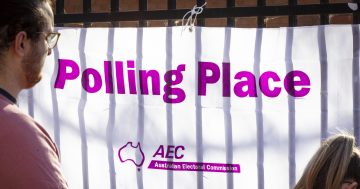
Online abuse of Australia’s election workers can now be acted on with more urgency. Image: File.
With online abuse against election staff increasing in jurisdictions across the nation, all electoral commissions in Australia have ramped up efforts to protect their staff during and outside of campaigns.
All federal, state and territory electoral commissions have adopted a mechanism to refer incidents involving adult cyber abuse or sharing illegal or restricted content related to a staff member to eSafety for urgent review and investigation.
Australian members of the Electoral Council of Australia and New Zealand (ECANZ) have signed a joint referral protocol with the eSafety Commissioner to create a safer work environment for election staff.
This protocol opens a clear path for electoral commissions to request immediate help removing serious and harmful online material targeting election workers.
They have signed up to the referral protocol in what they say is recognition of an increasingly complex online environment that often targets election staff.
In a joint statement, the signatories said the referral protocol represents a united front from electoral commissions in Australia and a commitment to work closely with eSafety to take action to protect election staff from online harm.
The eSafety Commissioner, Julie Inman Grant, noted that her commission – eSafety – has unique, world-first powers to support Australians experiencing serious adult cyber abuse and its impacts.
“Vibrant, vigorous debate is the lifeblood of our modern democratic society and must be encouraged,” she said.
“But our right to express a political viewpoint or dissent does not trump a person’s right to live free from online harassment, hate and abuse, especially when that individual is performing a vital function in aid of free and fair elections.”
Ms Inman Grant said eSafety exists to provide a safety net for Australians who are the target of serious online abuse when platforms fail to act.
“Every day, we work hard to provide rapid, compassionate, citizen-centric service to Australians caught in the crosshairs of unbridled vitriol and abuse,” she said.
“I encourage any Australian who needs support to visit eSafety.gov.au for resources, advice and guidance on how to report serious online abuse.”

eSafety Commissioner Julie Inman Grant. Photo: eSafety.
ECANZ Chair Mick Sherry thanked eSafety for helping Australia’s state and electoral commissions embrace the referral protocol.
“While free speech and robust debate are part of the democratic process, online abuse aimed at harassing, threatening or endangering our staff will not be tolerated,” Mr Sherry said.
“The safety and well-being of our election workforces is of paramount importance. Without our staff, we would not be able to deliver elections.
“In an increasingly complex environment, ECANZ members are committed to implementing measures that increase staff safety and minimise harm.
“Strong relationships and support from Australia’s independent regulator for online safety will further this goal.
“Our partnership with eSafety is aimed at protecting our staff, who work tirelessly to deliver democracy across Australia.
“Election staff have a right to be safe from harm at work.”
The Australian Electoral Commission operates a disinformation register for federal electoral events as part of its responsibility to ensure voters have access to fact-based information about electoral processes.
The register, which is a fairly recent development, will list prominent pieces of disinformation the AEC has discovered regarding the electoral process, and it will give details of actions it has taken in response.
While the AEC clearly states it is not the arbiter of truth regarding political communication and does not seek to censor debate in any way, it is fierce in defending its role in conducting elections with integrity.
“When it comes to the election process we conduct, we’re the experts and we’re active in defending Australia’s democracy,” it says.
However, this measure does not protect its own staff from being negatively targeted and abused online.
This new referral protocol takes a significant step towards ensuring the safety of AEC staff and election staff in state and territory electoral commissions.
















